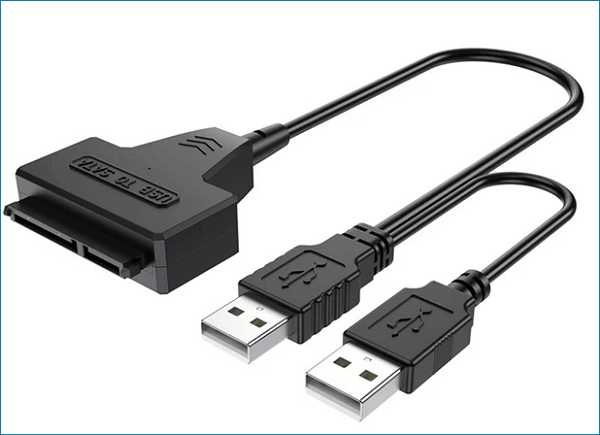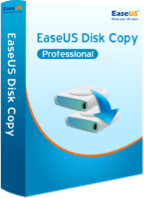Page Table of Contents
The cloned HDD/SSD won't boot issue is a common error many users encounter after cloning an HDD/SSD, which is very frustrating and may affect work efficiency.
This guide explains why your Samsung SSD clone not booting and provides effective solutions to help you make a cloned hard disk bootable on Windows 11/10/8/7.
Key Takeaways
- ⏺️Cloned Samsung SSD won't boot may be caused by incorrect SSD installation or unstable connection, wrong boot drive, hidden boot sectors, unsuccessful cloning process, bad sectors, incompatible BIOS boot mode, etc.
- ⏺️You can try to fix 'the cloned Samsung SSD won't boot' by reconnecting the SSD, resetting the boot order, reckoning SSD, performing Bootre.exe, or setting BIOS to boot from UEFI or Legacy, etc.
- ⏺️EaseUS Disk Copy is an excellent Samsung Data Migration alternative that you can use to clone Samsung SSD successfully with only a few clicks.
"So, today, I purchased a Samsung 840 EVO 250 GB SSD and used Samsung Data Migration v2.6 to clone the data from my main HDD to the SSD. So, it successfully copied and verified all of the data. When done, it asked me to restart my computer and 'install the SSD'. After I restarted it, it booted up to the SSD, but when I checked the computer to see the hard drives, the old hard drive was set as C and still had the Windows files on it. Do you know why this happened? How can I move all the boot drives to the SSD?"
Are you experiencing the same issue when attempting to upgrade to a new Samsung SSD? To effectively resolve the problem, you must first understand why this error occurs. Some of the most common reasons are:
- An unstable SSD connection or incorrect installation caused your SSD to be unable to be recognized.
- The cloned SSD isn't set as the boot drive.
- The BIOS boot mode is not compatible with your cloned SSD.
- The Boot sectors are hidden somewhere and haven't been cloned to the SSD.
- The Samsung SSD cloning failed during the process.
- ✏️Editor's Recommendation:
- If you don't know the exact reason and don't want to try fixes one by one, it is strongly recommended to try EaseUS Disk Copy, which can clone Samsung SSD successfully and boot from it seamlessly.
Workable Solutions to Fix Samsung SSD Won't Boot Issue
We have listed five solutions based on the above possible causes. Follow the stepwise guide to make your SSD work normally.
Quick Navigation.
- 1. Reconnect/Reinstall SSD Correctly
- 2. Change Boot Order to Boot from Cloned SSD
- 3. Set BIOS to boot from UEFI or Legacy
- 4. Perform Bootre.exe
- 5. Re-Clone Samsung SSD 🔥
1️⃣ Reconnect/Reinstall SSD Correctly+
You need to connect the SSD to your computer properly via a SATA to USB cable or an adapter to ensure the Samsung SSD can be recognized correctly.
If you install Samsung SSD in your computer's case, reinstall it and make sure the SSD is placed in exactly the right place
After that, restart your computer and check if it can boot from the new SSD.

2️⃣ Change Boot Order to Boot from Cloned SSD
There is another possibility that you didn't boot from the Samsung cloned SSD if you keep two disks on your computer simultaneously. In this case, you can change the boot disk in BIOS settings.
Step 1. Shut down your PC, restart it, and press F2.F8/F12/Del key to enter BIOS settings.
Step 2. Locate the Boot tab and select the cloned Samsung SSD as the boot drive.

Step 3. Save the changes and exit BIOS.
Step 4. Restart your computer, wait patiently, and check if it can boot up from cloned SSD.
🎨Note: If your original boot disk is MBR, you'll need to make the partition active in order for the SSD to boot after cloning. You can resolve this issue using the following method.
Is the post helpful? Remember to share it with your followers and fans to help them solve the same issue.
3️⃣ Set BIOS to boot from UEFI or Legacy
If you clone the GPT disk to MBR SSD or clone MBR to GPT, you must change the boot mode from UEFI to Legacy or swap from Legacy to UEFI.
Step 1. Restart your computer and press F2/F8/F12/Del key to enter BIOS settings.
Step 2. Move your mouse under the Boot tab, click the UEFI/BIOS Boot Mode option, and change it to legacy or UEFI.

Step 3. Press the F10 key to save the setting and exit BIOS.
Step 4. Restart your PC and check if the cloned SSD is bootable.
🎨Note: There are situations when your computer only supports MRB or only supports GPT. You need to convert MBR to GPT or vice versa to make your SSD bootable.
4️⃣ Perform Bootre.exe
Bootrec.exe is a utility for updating the master boot record code, partition boot sector code, and BCD (boot configuration data). You can use this Windows Command Prompt to solve 'the Samsung cloned hard drive not boot' issue.
Step 1. Prepare a Windows installation disc and boot your computer from it.
Step 2. Select Troubleshoot - Advanced Options - Command Prompt.
Step 3. Type the bootrec.exe command in the pop-up command prompt to launch this tool and fix the error.
- bootrec.exe /fixmbr
- bootrec.exe /fixboot
- bootrec.exe /scanos
- bootrec.exe /rebuildbcd

5️⃣ Re-Clone Samsung SSD
If you have tried all the above solutions and none is workable, it must be an incomplete disk cloning. Samsung Data Migration may stuck or Samsung Data Migration not working during the SSD cloning process. To ensure a successful Samsung SSD cloning, you should use the Samsung Data Migration alternative, EaseUS Disk Copy, a professional disk cloning program with many advanced features.
- Fast cloning speed without data loss.
- Compatible with various HDDs and SSDs.
- Support sector-by-sector cloning to copy only used space.
- Smart cloning to skip bad sectors while disk cloning.
- Support system clone to migrate OS to SSD seamlessly.
With this robust disk cloning tool, you don't need to worry about a failed process or data loss. Download and clone your Samsung SSD right now.
Prior Notice:
- The "Sector by sector copy" asks the size of your destination disk to be at least equal to or larger than that of the source disk. Leave this feature unchecked if you wish to clone a larger hard disk to a smaller hard disk.
- All data on the destination disk will be completely erased, so take care.
Step 1. To start copying/cloning an entire disk to another, choose this disk as the source disk under "Disk Mode" and click "Next".
Step 2. Choose the other disk as the destination disk.
Step 3. Check the disk layout of the two disks. You can manage the disk layout of the destination disk by selecting "Autofit the disk", "Copy as the source" or "Edit disk layout".
- "Autofit the disk" makes some changes by default on the destination disk layout so that it can work at its best status.
- "Copy as the source"does not change anything on destination disk and the layout is the same as source disk.
- "Edit disk layout" allows you to manually resize/move partition layout on this destination disk.
Tick the "Check the option if the target is SSD" option to put your SSD in its best performance.
A message now appears, warning you that data will be lost. Please confirm this message by clicking "OK" and then click "Next".
Step 4. Click "Proceed" to officially execute the task.
Is the post helpful? Remember to share it with your followers and fans to help them solve the same issue.
To Wrap Things Up
This is all about 'Samsung SSD Clone Not Booting', and we hope the post will help you successfully make your Samsung cloned SSD boot.
Based on our experiences, Samsung Data Migration is not a perfect choice since it only has basic features and has limited technical support. EaseUS Disk Copy works as its alternative, offers advanced SSD cloning features and faster speed. With it, you can clone HDD/SSD with only a few clicks and boot from it without any hassle. You should never miss it.
FAQs Related to Samsung SSD Cloning Not Boot
1. Why is my Samsung data migration not making progress?
Samsung Data Migration gets stuck and does not make progress due to many potential factors, like insufficient disk space, large files or partition migration at one time, bad sectors or wrong partition on source/target disk, etc.
2. How long does Samsung cloning take?
The time it takes to clone a Samsung SSD largely relies on how much data is saved on your disk. The more data on your SSD, the longer time it will take. Moreover, other factors, like cloning speed, hardware condition, connection cable, etc. The cloning speed may vary from 10Mb/s to 1000Mb/s. Choosing a reliable disk cloning tool, like EaseUS Disk Copy, is a good option if you want to speed up the cloning.
3. How do I get BIOS to recognize a new SSD?
You can check the cable connection if BISO is not detecting or recognizing a new SSD. Ensure the SATA cable is properly and tightly connected to your computer. Furthermore, check the condition of your SSD to see if it is physically damaged. You also need to ensure that the BIOS settings are correct.
Was this page helpful? Your support is truly important to us!

EaseUS Disk Copy
EaseUS Disk Copy is a well designed and very easy-to-use HDD/SSD cloning and migration tool, a tool which should be ideal for anyone wanting to quickly and easily migrate an existing system disk to a new disk (or newly installed SSD drive) with the minimal of configuration required.
-
Updated by
Larissa has rich experience in writing technical articles and is now a professional editor at EaseUS. She is good at writing articles about data recovery, disk cloning, disk partitioning, data backup, and other related knowledge. Her detailed and ultimate guides help users find effective solutions to their problems. She is fond of traveling, reading, and riding in her spare time.…Read full bio
EaseUS Disk Copy

Dedicated cloning tool to meet all your system, disk, and partition clone needs.
Popular Posts
Interesting Topics















